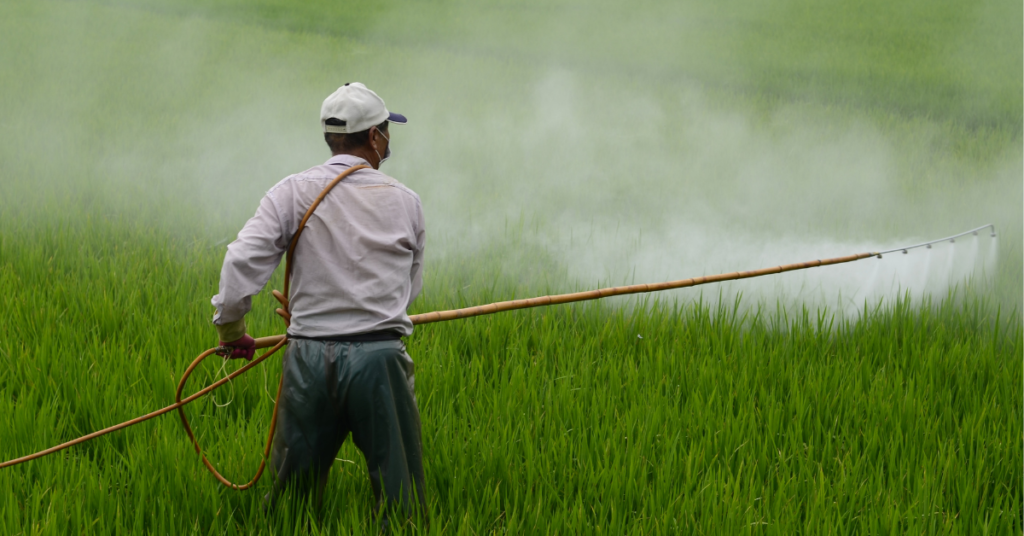An indepth study of how pesticides affect environment and human health

Have you ever tasted natural and organic food? The taste of naturality cannot be explained it can only be felt. Today the production of crops has increased significantly, and the food is becoming increasingly soft. But where is that naturality in our food? Have you ever thought, why are we actually missing the naturality in food? The loss of taste and nutrition in food is nothing but the ill effects of pesticides.
It’s because of the extensive usage of insecticides and pesticides in crops. The increasing use of pesticides is a threat to the entire world.
The toxic effects of pesticides are clearly visible not only on the food we consume on a day-to-day basis but also on the environment as a whole.
Effects of Pesticides on the Environment and Human Health
Pesticides are used to kill pests and insects, which attack crops and cut productivity eventually. Human beings are using different pesticides for the last hundreds of years. Pesticides benefit the crops; however, they also impose a serious negative impact on the environment.
Uncontrolled use of pesticides will lead to the destruction of biodiversity.
Many birds, aquatic organisms, and animals are under existential threat due to the pesticides harmful effects. Pesticides are a definite concern for the sustainability of the environment.
Effects of pesticides on the environment
Over usage of pesticides is becoming a big concern now. These pesticides spread into the air, water bodies like rivers, canals, soil due to their regular use in the form of spraying, powders, solutions in the agricultural land. The harmful effects of pesticides on soil are clearly evident as it makes it infertile within some years.
In our home and garden, when we use mosquito repellents, bed bug spray regularly, the harmful substances enter into the physiology of humans and animals upon breathing.
Effects of pesticide on plants and animals
Chemicals present in most pesticides reduce nitrogen fixation, the symbiotic relationship between nitrogen-fixing bacteria and plants that is required for proper plant growth.
A reduction in nitrogen fixation results in reduced crop yield, particularly in legume-type plants. When this occurs, additional fertilizer is bound to be applied to the fields.
Pesticides effects on environment are also directly linked to the constantly declining bee population, a species that is vital to plant pollination. In fact, researchers have studied this effect, known as pollinator decline, in order to understand Colony Collapse Disorder. This disorder occurs when bee colonies are exterminated without prior indicators of population decline.
The US Department of Agriculture has released an estimate suggesting that US farmers lose approximately $200 million annually due to reduced pollination.
Pesticides harmful to humans causing cardiovascular, and chronic diseases.
Harmful Effects of Insecticides on the Environment
The effects of insecticides on human health are even riskier because of their exposure either directly or indirectly. You won’t believe it, but on a yearly basis, more than 26 million people suffer from pesticide poisoning, causing nearly 220,000 deaths.
Hundreds of millions of people are exposed to pesticides every year, primarily through agriculture.
Globally, 36 % of workers are employed in agriculture are facing such consequences; this figure is rising to almost 50% in Southeast Asia and the Pacific and to 66 % in sub-Saharan Africa, which is indeed a matter of concern.
However, with all their hazards, the production of insecticides is continuously increasing in international trade. The global pesticide industry reached a record sales of 40 billion USD in 2008, and the trend is rising exponentially since then.
EDITOR’S VIEW
So what is the solution for this serious threat?
Every creature has its role and relation with the environment, and it must be respected in order to maintain sustainability. By adopting organic pesticides and insecticides alternatives, practicing sustainable agriculture practices, we can aspire to build a much better world.
As our part let us create awareness and play our role or contribute our role in protecting our environment.
#BleedGreen


I am Priyanka pursuing graduation in BSc Agriculture. I love researching and writing on the topic related to the environment and Agriculture.
I firmly believe everyone has a role to play in protecting the environment and ensure a sustainable environment for our future generations.





Nice
Great affection and initiation to protect and remains our nature in order. Keep thinking and sensitise all around. May the God giving you much power to save his creation 👏👏👏👍👍👍
Not only pesticides, also some selective herbisides, chemical fertilizers too harmful to both vegitation and the Earth
Good 👏👏👏
You’ve got all the right moves and given short and clear overview on this topic👍Implementing IPM is more advantageous to farmers as it encourages natural pest control mechanisms
Nice article coming to solutions better mention what are those sustainable practices
Like integrated pest control by trap crops;
Use of Pheromone traps;
Seed treatment
Aware farmers about usage etc
Pingback: 100 Interesting Water Pollution Facts (2021 Updated) - BleedGreen
Pingback: How I Sell Organic Watermelon Worth 2 Lakh In 3 Months? Learn From An Expert - BleedGreen
Pingback: 100 Soil Pollution Facts And Statistics Everybody Should Know (2021 Updated) - BleedGreen